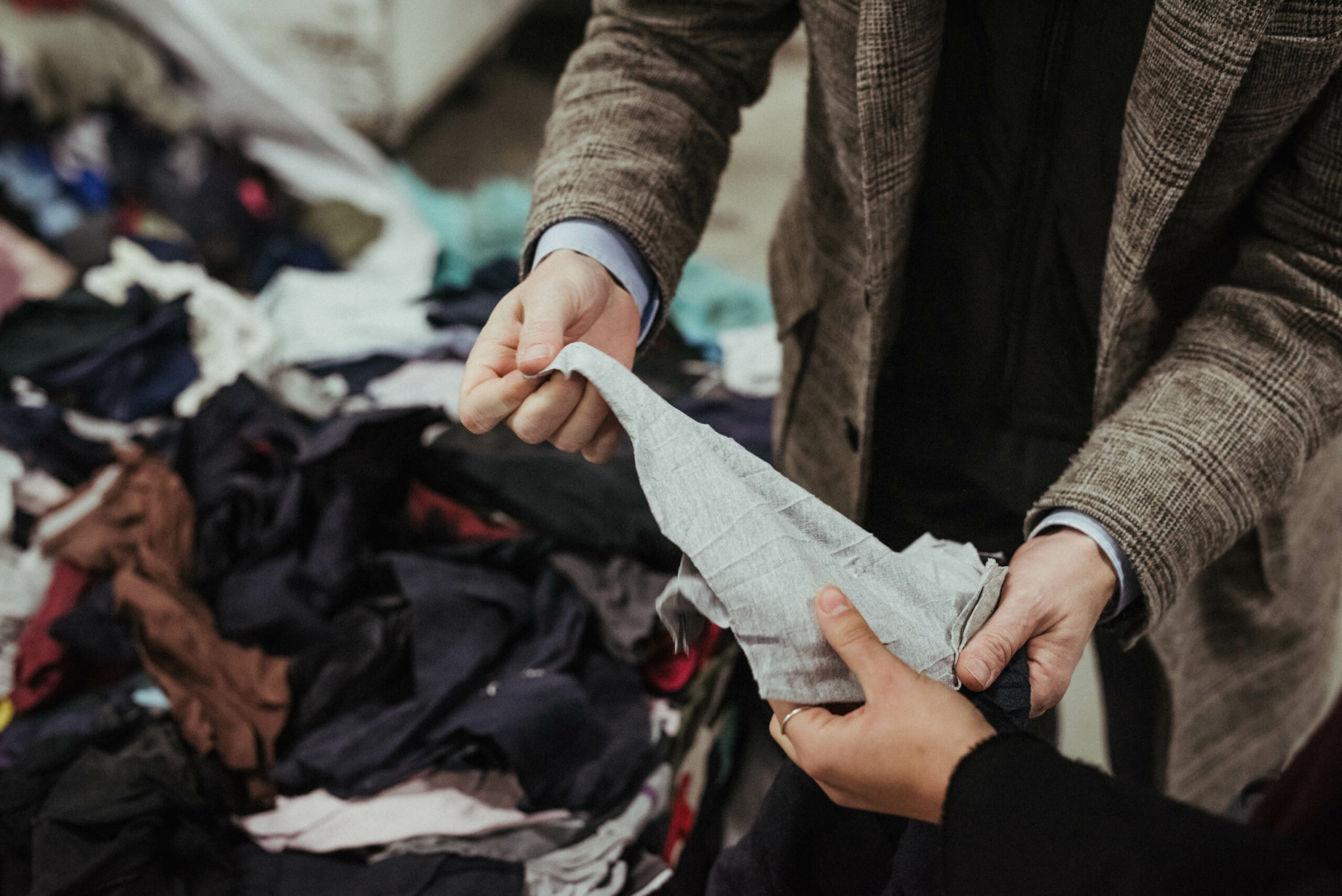The trend cycle is always in motion. Trends from earlier decades are eagerly dusted off and given a new look. At the end of the season they blow by again, and it’s time for something new.
That reality creates some serious problems. When trends are reviewed at record speed and distributed en masse, huge amounts of unsold inventory are left behind. Fashion brands often do not have the knowledge or space to integrate that deadstock into circular models in a sustainable way. And so that cute Y2K top that everyone just loved ends up mercilessly in the landfill. Closing the cycle and reducing the waste mountain, that is okret’s main mission.
fifteen kilos of waste per person
When there is something new in each season, consumers are encouraged to buy more. Not only that, but their purchases are also discarded faster. A report by the European Union and OVAM shows that Europeans buy an average of 26 kilos of clothing, shoes and household textiles every year. We Belgians throw away almost fifteen kilos of that. That’s almost half. Thanks to okret, these cast-offs can be given a new destination and remain in the cycle.
This is necessary, because the actual figure of waste per consumer is actually much higher. Waste is generated everywhere in the production process. The cutting of the fabrics alone accounts for around 15 to 20% of the waste — a statistic that accounts for around 4 million tonnes of textile waste per year, according to figures from Emmaus. Swallow. That is the harsh reality of throwaway culture.
Burberry is burning:
the consequences of overproduction
In addition to trend cycles and production processes, it is often financially and logistically more profitable for fashion companies to place large orders with their manufacturers. How brands deal with the surplus depends from brand to brand. You may have heard that luxury brands such as Burberry, Richemont and Louis Vuitton have been accused in the news of destroying and burning previous collections. They do this to maintain an illusion of exclusivity and to ensure that even their deadstock remains difficult to obtain. But such practices are of course detrimental to the planet.
Fortunately there is hope. France recently became the first European country to take legal action. With the upcoming AGEC law (Anti-gaspillage pour une économieulaire), the country requires manufacturers, importers and distributors in the textile industry to “give away, reuse or recycle” unsold products, otherwise sanctions will follow. Production models will have to be adapted to significantly reduce textile waste and keep the cycle going. A new evolution that okret can perfectly help with.
what okret does
By helping fashion brands re-sell deadstock or pre-loved items, okret provides a sustainable solution to the problem of surpluses and overproduction. This is not only good for the mountain of waste, but is also financially more advantageous. Items in the landfill are no longer useful at all.
Convinced? Join the circular revolution and contact us via the contact form.

